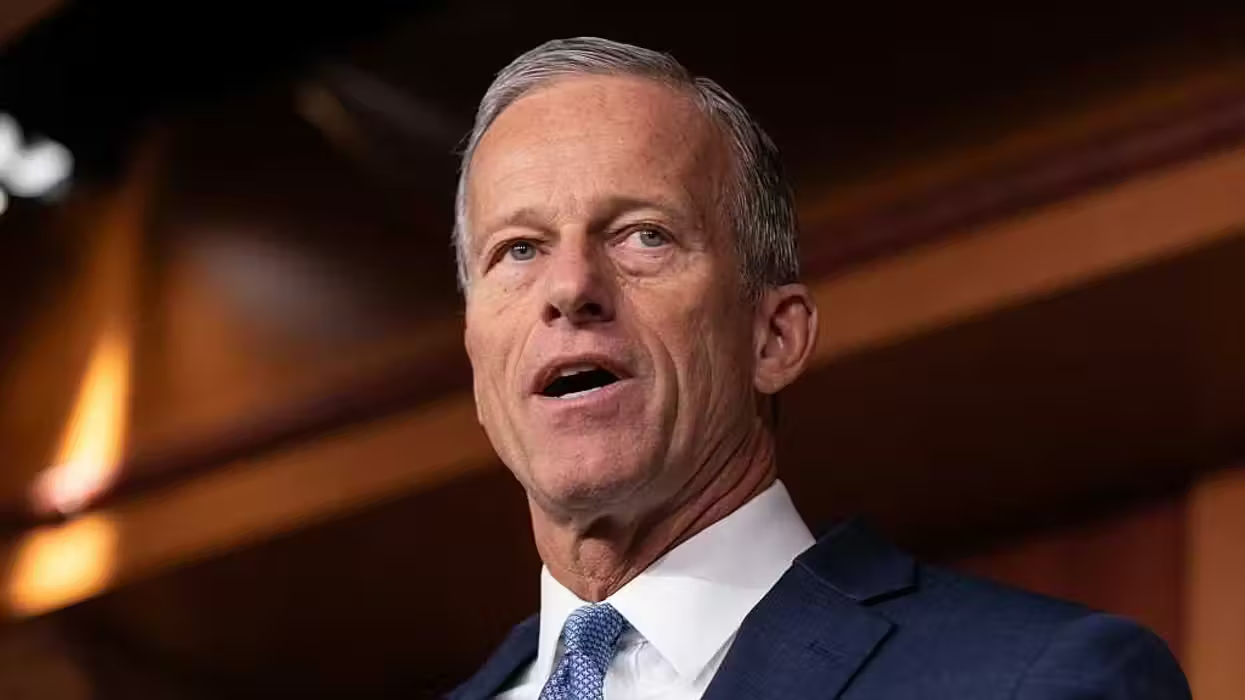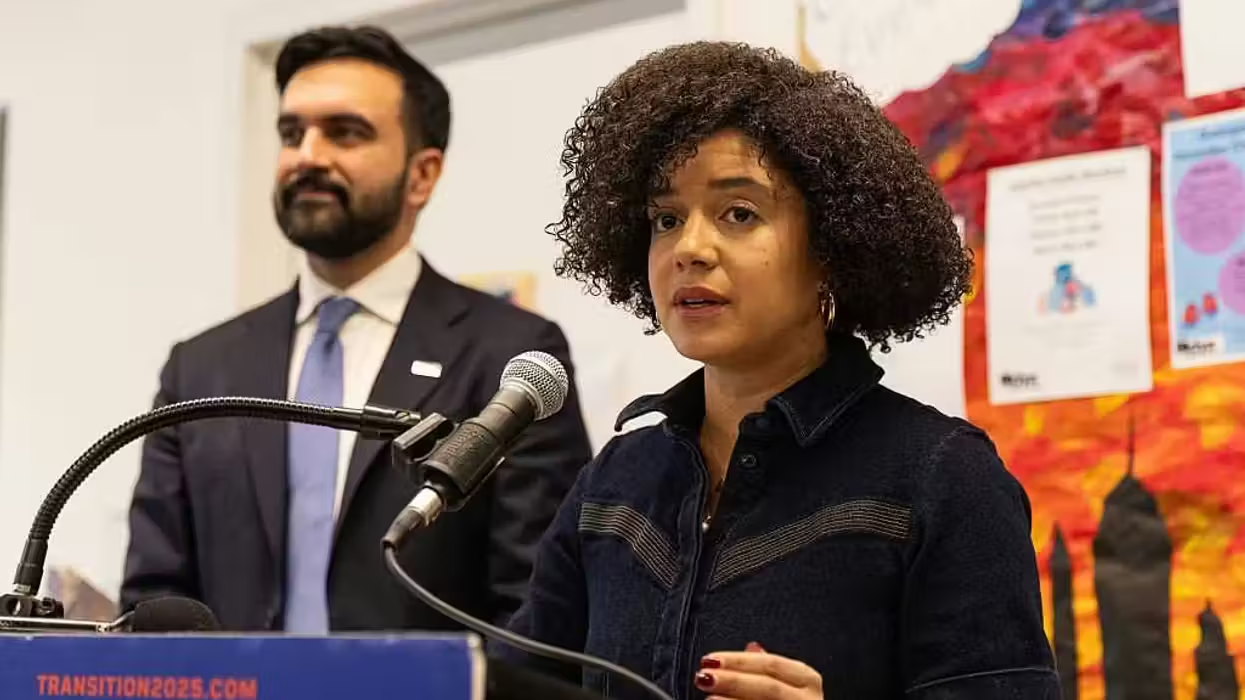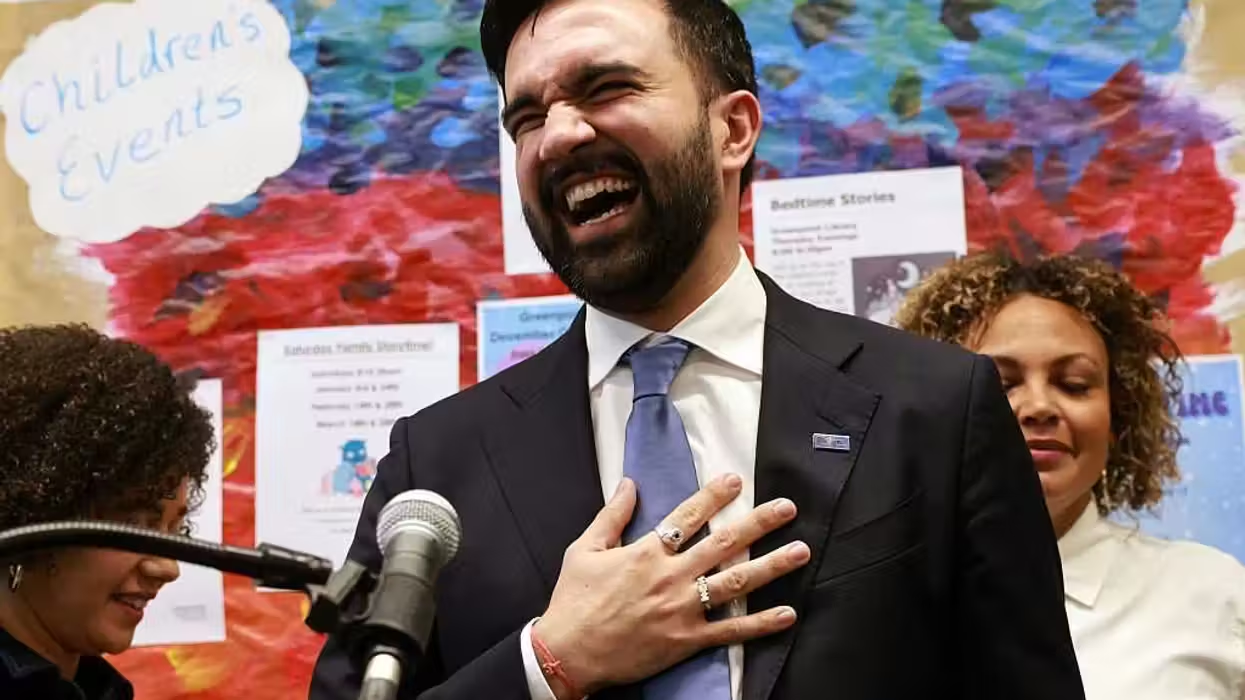© 2025 Blaze Media LLC. All rights reserved.
America is an overwhelmingly Christian nation. Regardless of statistics showing that there has been a decrease among those individuals who call themselves committed, church-going believers, the vast majority of the nation still subscribes to Christian theology. In fact, according to The Pew Forum on Religion & Public Life, 78.4 percent of Americans still fall into this category. Considering this large proportion -- and taking into account the high lever of poverty in the U.S. -- it's essential to ask: Are Christians doing enough to help those in need?
The Christian Post's Paul Stanley recently investigated that theme, exploring some of the staggering statistics that have emerged of late. These numbers show the monumental need that exists in America. While the U.S. has a total population of nearly 315 million people, a shocking 46.2 million of these individuals live below the poverty line. Perhaps more startling is the fact that more than 100 million Americans receive some sort of federal welfare aid. Stanley described the situation in detail:
When broken down to numbers that are easier to grasp, roughly 1-in-7, or 15 percent of Americans, are poor, up slightly from the previous year's total of 43.6 million.But what constitutes as a poor family in America? The U.S. Census Bureau defines poverty as a hypothetical family of two adults and two children living on an income of $23,021 or less in 2011. The median household income in the U.S. in 2011 was $50,054.
Yet the more poignant question is what is the primary cause of poverty and what role should the Church and the government play in reducing this number?
 Photo Credit: AP
Photo Credit: AP
These latter questions posed by Stanley are essential. To begin, one cannot solve poverty or even address individual cases of those who are ensnared by it without first understanding what causes it. Secondly, once these elements are determined, there is a decision to be made surrounding which institutions are most able to address intense need -- the government, the faith community or a combinations of the two.
Stereotypically, Democrats contend that government holds many of the solutions -- or, at the least, that public institutions should be heavily involved in offering aid. On the flip side, Republicans generally believe that local communities and private institutions best serve the impoverished. Stepping outside of this political paradigm, though, are the responsibilities of the faith community (mandates that have their roots in the Bible).
Considering the massive need, how have churches done when it comes to reaching those in need? Clearly, regardless of how fervently Christians have engaged the poor, there's still much to be done. Stanley spoke with at least one faith leader, Pastor Phillip Meek of Love and Truth Church in Savannah, Tennessee, who believes that Christians have not done their fair share to help those in need.
Meek believes that poverty is driven by the breakdown of the American family -- and that, when the family falls apart, no other institutions, including churches, operate properly. The faith leader had tough words for the poor and for believers, alike.
As for those in need, he said that the mindset of today's impoverished has changed dramatically. While a few decades ago, those in need might have been motivated to improve their situation, many, today, are simply seeking handouts, Meek claimed. That said, he also made it known that believers have a responsibility to serve the poor -- one that comes directly from Jesus in the Bible.
 Photo Credit: Shutterstock.com
Photo Credit: Shutterstock.com
"If Christians gave anywhere close to the 10 percent asked of them by God, not only would the church have ample resources, but in my opinion we would have enough to go around to help those who are really needy," he told the Post. "Because the church has not done what it is supposed to do, the government has taken over and as we all know, government has to have total control of anything they have their hands in."
Some may certainly dispute these claims, but in late 2011, TheBlaze reported that tithing has, indeed, declined to record lows. At the time, a report entitled, “The State of Church Giving Through 2009,” was released by Empty Tomb, Inc., a Christian research and service group. One of the study’s findings is that churches are giving less to charities and seminary training than they were in 1968 (when the organization produced its first report).
The 2012 results, which included giving through 2010, weren't much more favorable. The Charis Group provides some of the key highlights from Empty Tomb, Inc.'s most recent report:
- The proportion of income contributed to the church, as represented in Total Contributions, decreased from 3.11% to 2.40% in 2010, a decline of 23% from the 1968 base.
- Overall, giving to Congregational Finances as a present of income decreased from 2.45% in 1968 to 2.06%, a decline of 16%.
- If the same proportion of income had been given in 2010 as in 1968, aggregate Total Contributions would have been $29.2 billion rather than the actual amount given of $22.9 billion.
- That is a difference of $6.3 billion, or an increase of 28%.
- Personal incomes increased 130% from 1968 to 2010 while the percentage given to the church declined.
- Giving during The Great Depression stayed above 3%!
- If members of historically Christian churches had chosen to give 10% of their incomes instead of 2.4% in 2010 their would have been an additional $165 billion available to the Church.
Clearly, there's a dearth of giving -- at least when it comes to houses of worship. If Christians (which includes man conservatives that tout smaller government) are to keep with Biblical commands, then they must engage in the helping of the poor and downtrodden. While evangelical progressives like Jim Wallis of Sojourners would argue that the government should play a role in redistributing wealth and creating assistance mechanisms, conservative evangelicals would be more likely to reject this sentiment.
But if Christians are not giving, who is left to pick up the slack? While the economy has been in peril and need has increased, is it possible that believers have not met these elements with increased action? These are important questions worth asking.
What do you think? Is your church doing anything noteworthy when it comes to helping those in need? Let us know in the comments section and take the poll, below:
Church image courtesy of Shutterstock.com.Want to leave a tip?
We answer to you. Help keep our content free of advertisers and big tech censorship by leaving a tip today.
Want to join the conversation?
Already a subscriber?
Billy Hallowell is a digital TV host and interviewer for Faithwire and CBN News and the co-host of CBN’s "Quick Start Podcast."
Billy Hallowell
Billy Hallowell is a digital TV host and interviewer for Faithwire and CBN News and the co-host of CBN’s "Quick Start Podcast."
more stories
Sign up for the Blaze newsletter
By signing up, you agree to our Privacy Policy and Terms of Use, and agree to receive content that may sometimes include advertisements. You may opt out at any time.
Related Content
© 2025 Blaze Media LLC. All rights reserved.
Get the stories that matter most delivered directly to your inbox.
By signing up, you agree to our Privacy Policy and Terms of Use, and agree to receive content that may sometimes include advertisements. You may opt out at any time.






